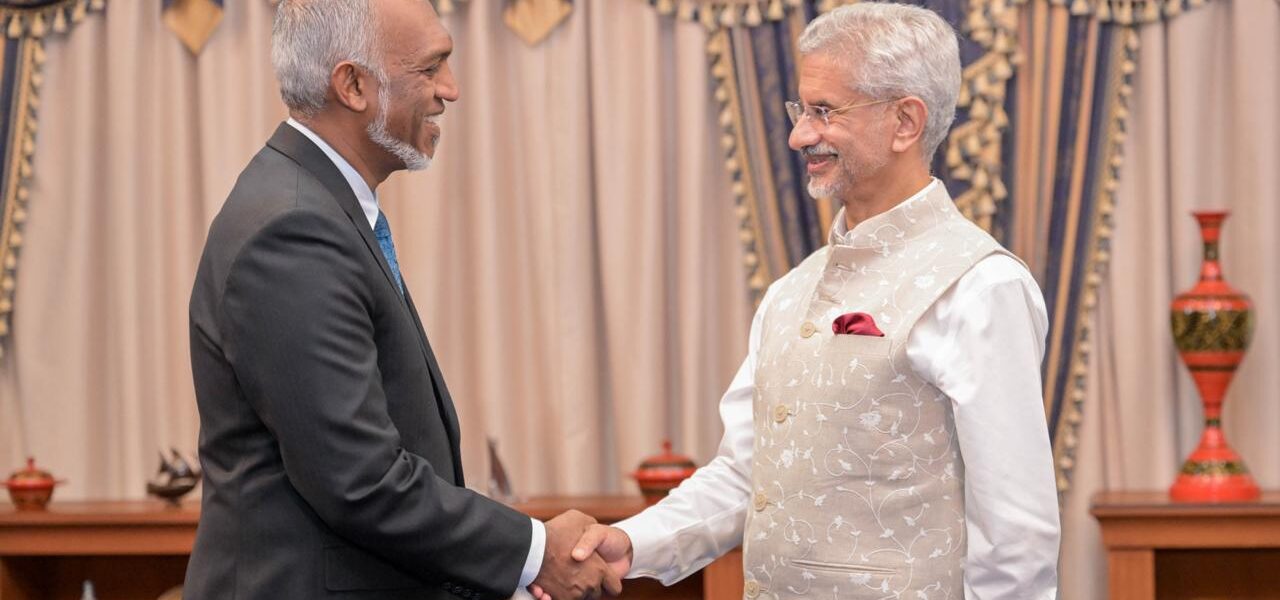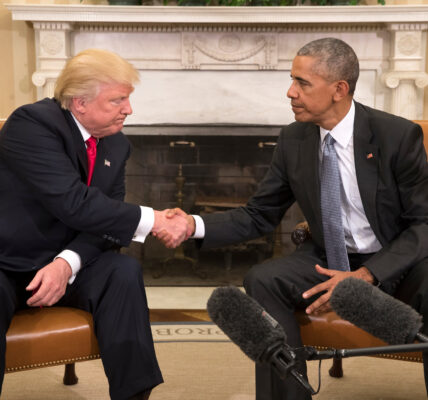Tensions between India and the Maldives have been high ever since Maldivian President Mohamed Muizzu came to power in November last year. His election was largely fueled by an anti-India campaign known as “India Out.” However, it appears that Muizzu is now seeking to reset relations with India, a country crucial to Maldives’ economic and regional stability.
On Monday, a spokesperson for the Maldivian government announced that Muizzu is set to visit New Delhi, with dates being finalized for what could be a trip as soon as next week. This marks a significant shift from his earlier stance and suggests that Muizzu is ready to mend ties with India.
Resignations of Maldivian Ministers Following Anti-India Remarks
The news of Muizzu’s upcoming visit wasn’t the only significant development this week. Two deputy ministers from the Maldives’ Youth Ministry, Malcha Sharif and Mariam Shuna, resigned from their positions. The timing of their resignations is noteworthy, especially given that these two officials made headlines earlier this year for insulting India’s Prime Minister, Narendra Modi.
In January 2023, Sharif and Shuna sparked outrage on social media with derogatory comments about Modi during his visit to Lakshadweep, a group of Indian islands near the Maldives. The trip was aimed at promoting tourism, but their remarks triggered a massive backlash in India, leading to calls for a boycott of the Maldives as a travel destination. Given that India is the largest source of tourists to the Maldives, this campaign hit the island nation hard, amplifying the impact of their actions.
While both ministers initially faced suspension, their official resignations just ahead of Muizzu’s India trip raise questions about whether these departures were truly voluntary or part of a larger diplomatic strategy. A third official involved in the scandal, Abdullah Majid, remains in his position for now, but it remains to be seen whether he will follow suit.
India’s Strategic Diplomacy Pays Off
Muizzu’s decision to visit India, despite his earlier anti-India rhetoric, didn’t happen overnight. India has been playing a long game, continuing to engage diplomatically with the Maldives, despite the initial hostility from Muizzu’s administration.
Just this week, India hosted Aminath Athifa, the Maldivian Minister of Construction and Infrastructure, to discuss the progress of the Thila-Male Bridge Project. Valued at half a billion dollars, the project is a crucial infrastructure initiative connecting the Maldives’ islands. Funded by India through a mix of grants and credit lines, the bridge is seen as a symbol of the long-standing relationship between the two countries. With construction halfway done and expected to complete by 2026, India’s commitment to the project has proven resilient, even during diplomatic strains.
India’s approach seems to be paying off. By maintaining its professionalism and focusing on long-term cooperation, New Delhi has reminded the Maldives of the value of their bilateral partnership. India’s willingness to overlook past tensions, while continuing to support infrastructure development in the Maldives, may have played a key role in Muizzu’s decision to reset ties.
A Shift in Defense Cooperation
In addition to economic collaboration, the Fifth Maldives-India Defense Cooperation Dialogue was held recently, with both countries agreeing to strengthen defense ties. This is a significant departure from Muizzu’s earlier promise to expel Indian troops stationed in the Maldives, who were there to assist in search and rescue operations. In May 2023, Muizzu fulfilled his campaign promise by sending Indian troops home. However, his recent actions suggest that the “India Out” campaign is no longer tenable.
By participating in the defense dialogue and now planning his visit to India, Muizzu seems to have recognized the importance of India-Maldives defense cooperation, especially given the growing strategic interests in the Indian Ocean region.
India’s “Neighborhood First” Policy at Work
Muizzu’s attendance at Prime Minister Modi’s swearing-in ceremony earlier this year was the first sign that the Maldives might be rethinking its stance on India. Now, as he prepares for his official visit to New Delhi, it’s clear that a diplomatic reset is underway.
For India, this is yet another example of its successful Neighborhood First Policy, which emphasizes building stronger ties with neighboring countries through diplomacy, economic cooperation, and strategic partnerships. The Maldives, with its geostrategic location in the Indian Ocean, has always been a critical partner for India. Despite earlier tensions, India’s commitment to maintaining positive relations with its neighbors is bearing fruit.
Conclusion: Diplomatic Reset on the Horizon
The Muizzu visit marks a significant turnaround in Maldives-India relations, signaling that the Maldivian government is ready to move past the India Out campaign. While some anti-India sentiment still lingers, particularly among some of Muizzu’s supporters, the diplomatic reset suggests that the Maldives recognizes the importance of its relationship with India.
By focusing on infrastructure projects like the Thila-Male Bridge and strengthening defense cooperation, the two nations are paving the way for renewed collaboration. For India, this visit is not only a victory for diplomacy but also a testament to its neighborhood-first approach, which continues to prioritize cooperation and mutual development in the region.





